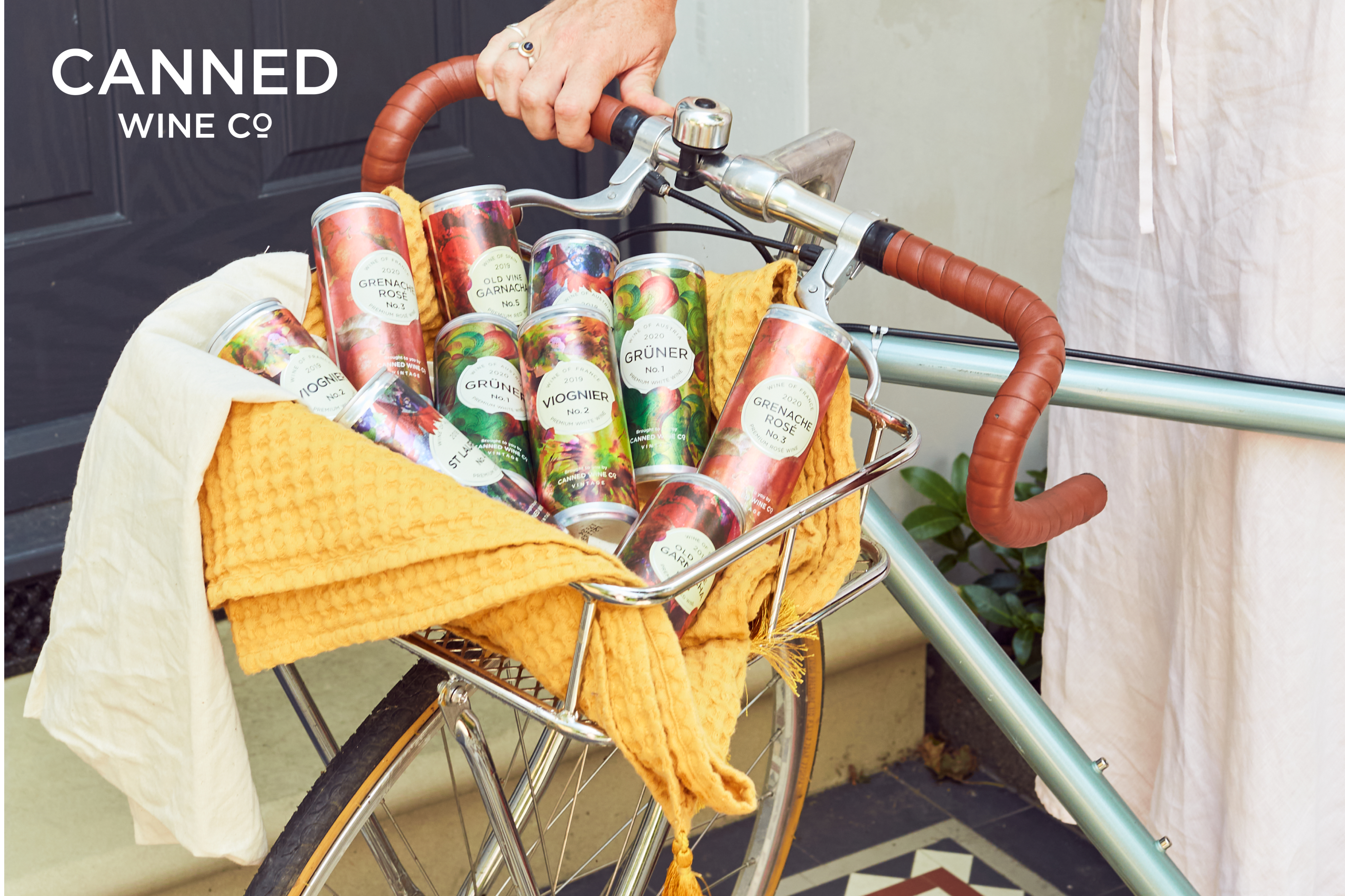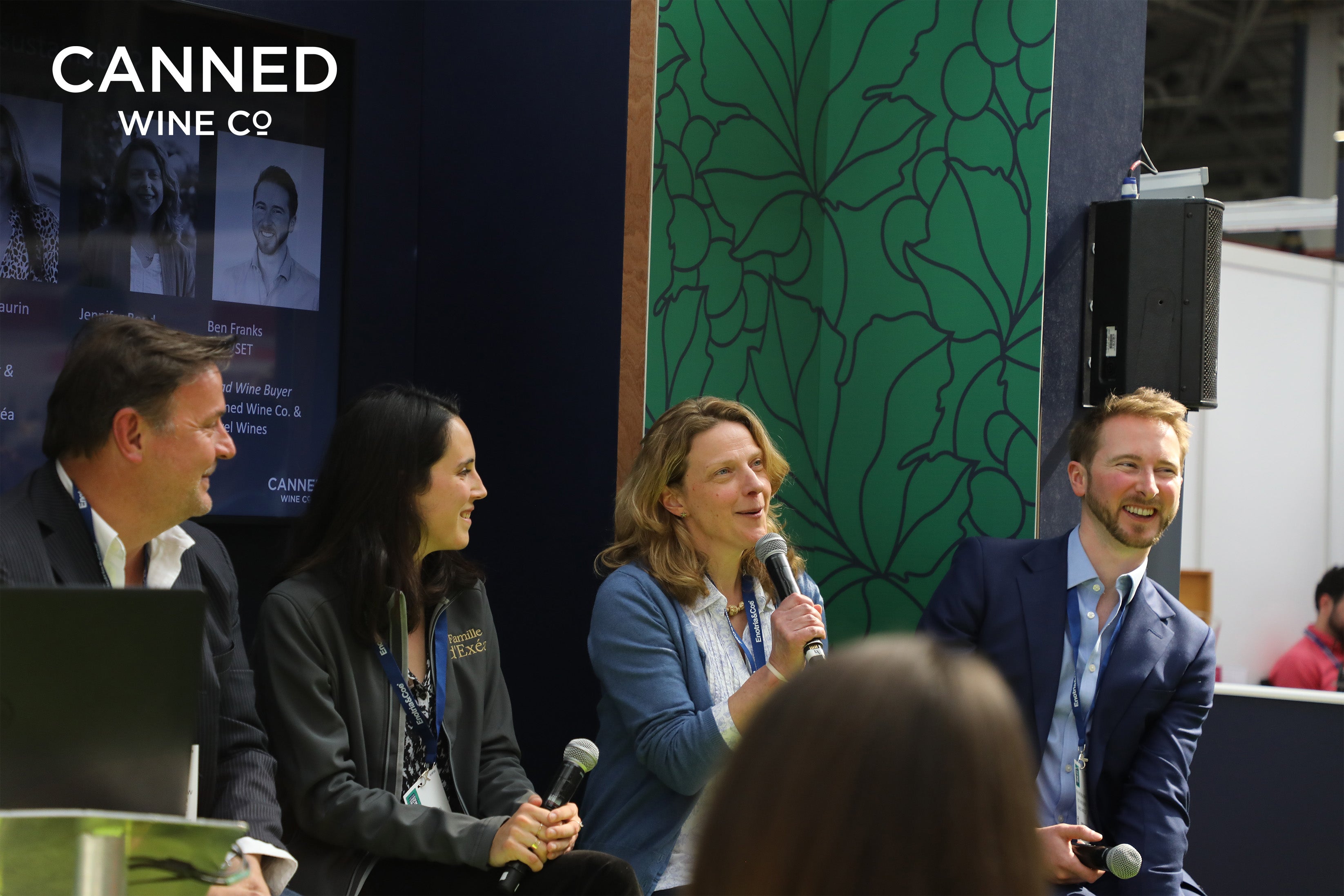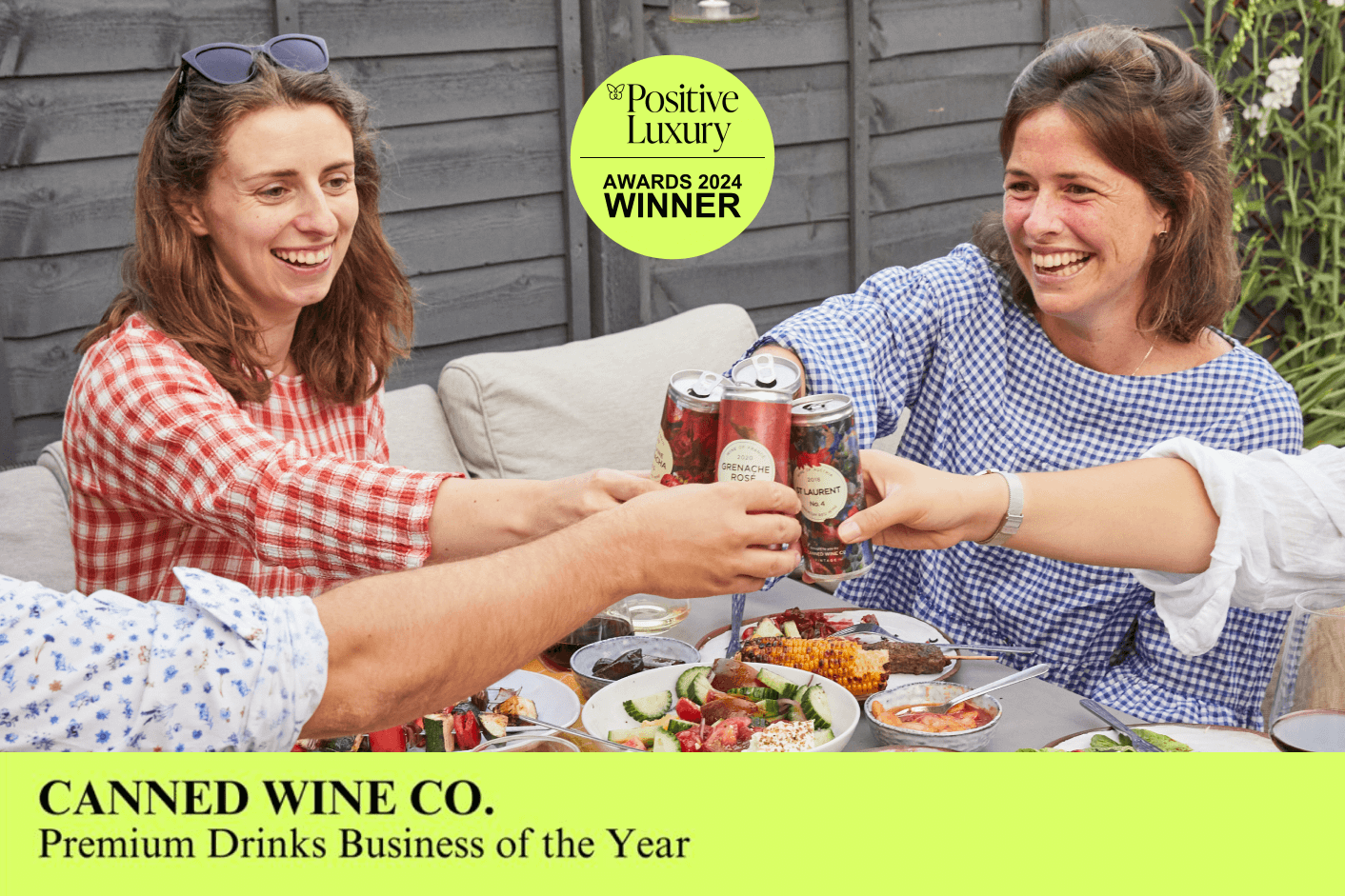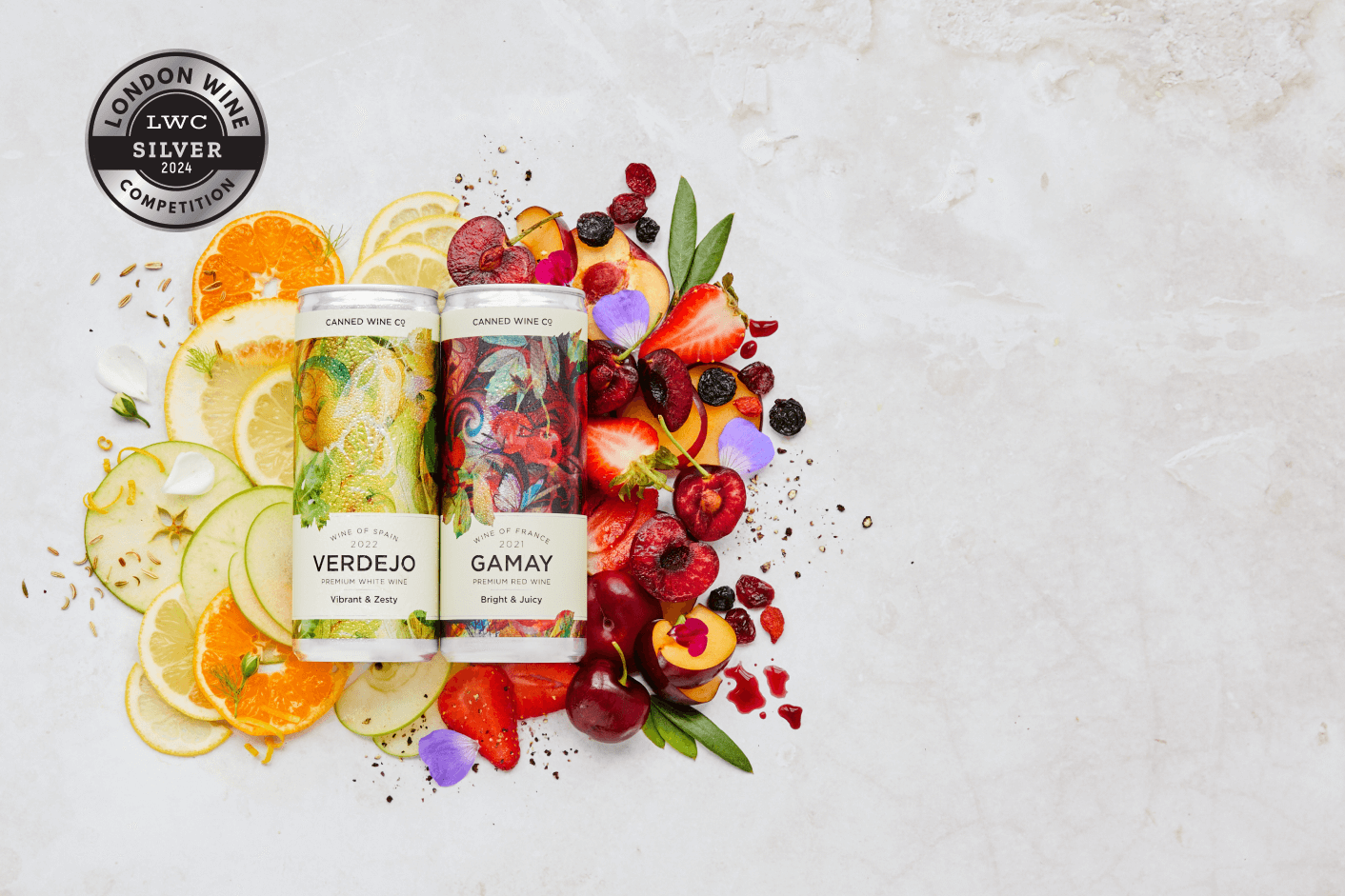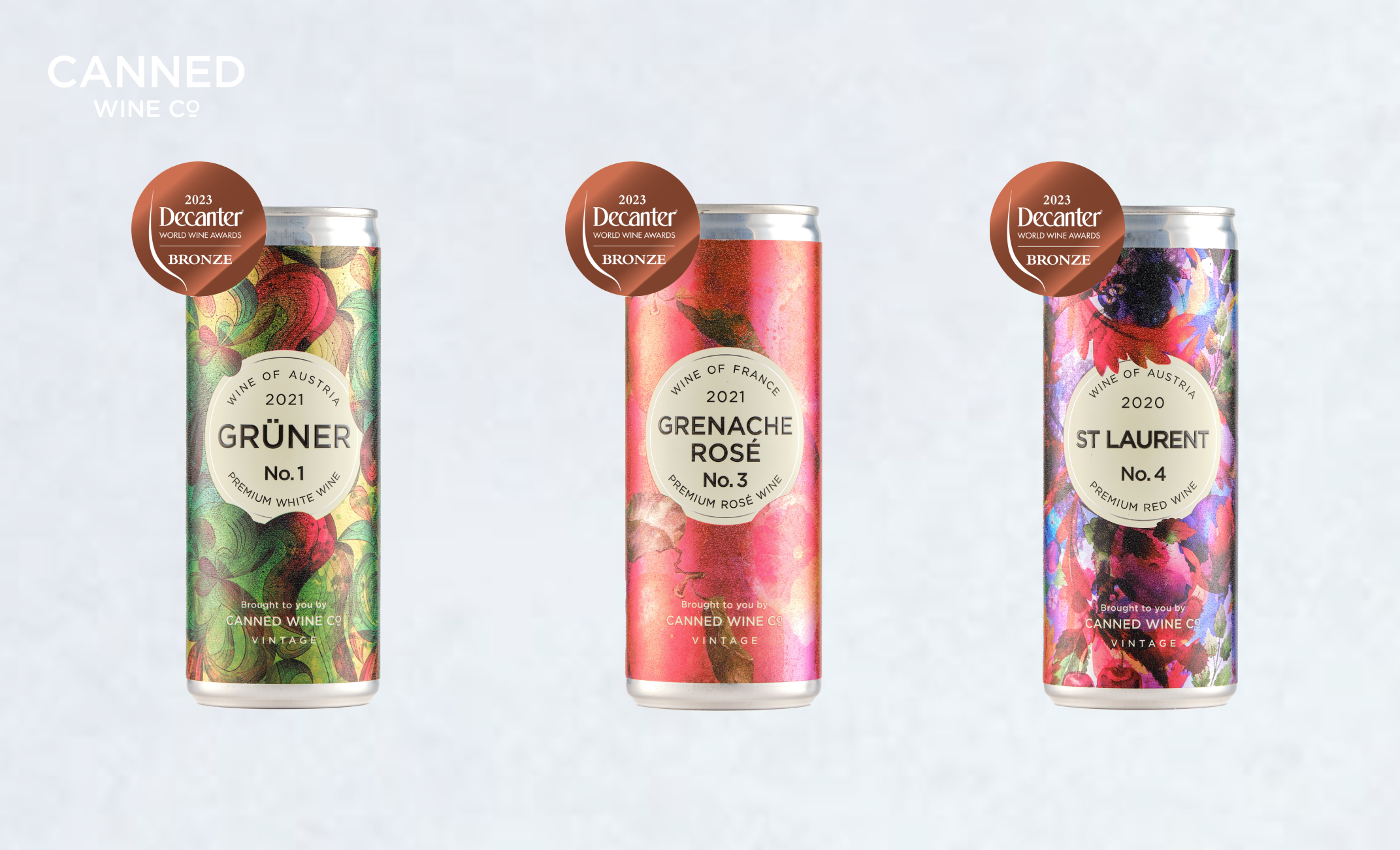Written by Ben Franks - Wine Buyer
Every new business must learn fast. A business is only real when it comes off the paper and gets put into action, and with every business plan the trials of reality rarely go 100% to plan.
One of the exciting missions in launching Canned Wine Co. is to prove that small format alt-packaging can be done well, using quality wines and premium branding to excite wine drinkers and persuade them that – for most occasions – can is every bit a legitimate choice as a bottle. Whether that’s because you’re drinking less, you’re curiously seeking out new grape varieties, or you’re reducing your wastage at home when you don’t finish the bottle, a good quality canned wine can be the perfect buy. We can only make this case because our brand equity is built on trust. Wine is inherently a luxury product, there to deliver on an experience, and with so much choice it’s difficult to build that trust, but it’s easy to lose it.
Ultimately, it means at Canned Wine Co. every product we deliver needs to look, feel and taste great. We are in the memory-making business and the loyalty of our customers comes from that wow moment when the can exceeds all their expectations.
On the flip side, the canned wine format is more challenging than a bottle. By its nature it is practically oxygen-free, which forms a reductive environment for the wine inside. Not to mention that the internal liner separating the wine from the aluminium can is delicate. We learnt quickly that every wine needed to meet a strict technical specification with low SO2, the right pH level, some tannin structure, moderate alcohol, and low residual sugar. It also needs to be filtered. When the wine is ideal, it’s like taking a photo in time – with every can tasting as beautifully as when we fell in love with it as buyers and chose to can it. That needs to be true whether you’re the first one to buy it, or the last.
Naturally, these lessons are not learned overnight. Vintage-led wine works in 12-month cycles and winemaking, depending on how you do it, can last even longer. Our Old Vine Garnacha, for example, spends 12 months, sometimes more, in oak under the watchful eye of our winemaker before we ship it to our canning site for packaging. As we have to commit to these wines early, we make sales forecasts. Every start-up will nod along when we say these began ambitious, albeit not unrealistic, and everything took longer than planned – not least because we launched during Covid.
Yes, okay, having been through launching a business before perhaps the “things take time” trope should have been a path well-trodden for me; and yet the reason why founders launch business plans is because they’re excited to make change and deliver something new. Excitement drives ambition, and in turn, we aim high.
While some of our expectations have panned out and others have sky-rocketed, inevitably not every expectation happens when you want it to. When you’re managing commercial demand, fast growth and consistently learning to be technically better, the cost of quality is a conversation every buyer is having. That is even more true when your commitment to reducing your impact on the planet is one of your core values.
What do you do when a wine’s quality drops and threatens to break the trust your brand’s worked so hard to build? What about when the wine is an early passion project that has struggled to find a place in the market? It might taste great, but if it’s not selling then it’s burning up cash in storage fees that a new start-up might struggle to fund.
Our dedication to quality means some difficult decisions have had to be made. Last year, we’ve worked with a canning plant that have not held up their end of the deal and the product they delivered was way below par; as a business we had to make the tough decision not to put that product on the market at all. That means all that effort throughout the year is wasted – and it’s not just the wine, it’s the logistics moving it across Europe, it’s the canning process, the aluminium, and the labels. All that human effort and physical resource is lost. What made it even more heartbreaking is that it was our largest single canning run to date. Think about that: the hands on the vines pruning it back, the nurturing through the growing season, the picking and sorting for the best fruit, and the winemaking. It is not easy to write off something like that, especially not when you love the wine you sell and the people you work with.
You do all of that and then a contractor treats it badly. They skip processes and get distracted. We used them once and we will never use them again. Lesson learnt, but it came at a huge financial cost to our business. The decision to destroy the product went against all our principles to reduce waste, but how can we build a business that trades on trust if the product doesn’t only not deliver but is objectively faulty and poor?
Brutally, you can’t.
So to ensure we keep the trust in our customers and our suppliers, we took the hit. In the mid to long term our winemakers, our customers and our company benefit. If more people drink wine from cans alongside glass, that is a positive moment; it is lighter to move and more recyclable. If more people drink better wine but less of it, we are all healthier. If more people trust cans, the more we do to diversify the market and keep wine exciting.
But as we say, lessons in small businesses are learnt fast. That decision led to doubling down on due diligence, investing in a packaging site partner with an on-site oenologist, hiring our own Technical Manager, and testing new ideas at smaller volumes.
We probably won’t make a mistake as big as that again, but that doesn’t mean wastage ends with one bad error. Quality demands a constant pursuit to improve. I am sure you have all seen on shows like Masterchef how a head chef won’t send out a dish that’s not perfect or burnt. I am sure, in a similar vein, a good chef won’t use ingredients if they’re not as fresh or flavoursome as they should be.
At Canned Wine Co., there are two challenges we face in 2023: keeping wines selling at a pace whereby they are always fresh and performing their best, and finding a market for new and exciting – albeit unproven – ideas for new SKUs. Sometimes we get these right, sometimes we miss the mark. The important thing is that we never – like those great chefs – put something out we’re not happy with. We have to keep building that trust.
Today when it comes to new wines, we have created a strict technical specification, look for wineries with strong credentials, and interview them about their sustainability practices and product traceability. When these are approved, we have worked hard to ensure they have a robust route to market with listings in a handful of major UK distributors. We are privileged enough today to be selling enough wine to spend more time justifying the market for new lines before we act on them. Sometimes things still take longer, other times they fly – this is the nature of markets after all – but today we are more experienced. Our growing confidence and continued openness to learn means less mistakes will be made and our ability to deliver better wine will come at a lower cost to the world we live in.
Canned wines are getting better, and we already believe our wines compete like-for-like with their bottled friends. The cost of quality may sometimes be high, but in the long term we hope the reward is a more sustainably friendly range of wines, available in all varieties of format.
We’ll get there and we will keep learning.


